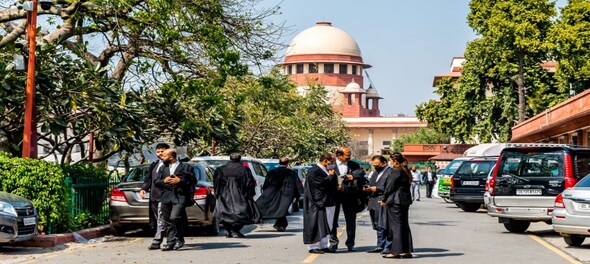
In what will be a landmark verdict on individual rights, the Supreme Court (SC) will deliver its judgment on the legality of recognising same-sex marriage in India, on Tuesday, October 17. The judgment will be pronounced by a constitutional five-judge bench, headed by the Chief Justice of India D.Y. Chandrachud. The bench also comprises Justice S.K. Kaul, Justice S. Ravindra Bhat, Justice P.S. Narasimha, and Justice Hima Kohli. Notably, Justice Bhat is due to retire on October 20.
This ground-breaking verdict follows a little over five years since the Supreme Court's historic decision to decriminalise consensual sex between homosexuals by declaring Section 377 of the IPC unconstitutional on September 6, 2018.
In the case of same-sex marriage, the bench had reserved its judgment on May 11 after 10 days of hearings, which included a thorough exploration of the legal and social issues related to recognising same-sex marriage. The court had subsequently postponed its decision on the petitions.
During these proceedings, 17 lawyers argued in favour of the petitions, while 22 lawyers representing the government told the court that it is the role of the legislature to pass such a law after holding consultations.
The petitioners had argued for legal recognition of the right to marry for LGBTQ+ couples, asserting that same-sex marriages could be recognised under the provisions of the Special Marriage Act (SMA) to grant dignity to their unions.
In November 2022, two same-sex couples moved to the apex court seeking legal recognition of same-sex marriages in India. One of the petitions challenged the constitutional validity of the Special Marriage Act of 1954 and asked the court to alternatively reinterpret the Act in a gender-neutral manner, thus preventing discrimination based on sexual orientation.
Importantly, the Centre has maintained that the right to marry needs to be regulated and can be allowed only for unions between biological males and biological females. The Centre has held that while there may be no right to marry, there is nothing that restrains the right to love or cohabit.
The government contended that legalising same-sex marriages was not within the court's jurisdiction, and it is for the Parliament to legislate on it after consulting with the states. The Centre also informed the top court that if this were recognised, a multitude of laws would need to be amended as a consequence.
The Centre also told the court that it had received responses from seven states on the issue of same-sex marriage, where Rajasthan, Andhra Pradesh, and Assam had opposed the move to grant recognition for same-sex marriage.
However, it also informed the top court that it was willing to form a committee headed by the Cabinet secretary to consider administrative measures for issues faced by same-sex couples in their daily lives in areas such as banking, insurance, etc, without going into their plea for legal recognition of same-sex marriage.
In the course of the hearing, the SC has observed that it was open to the idea of securing rights that flow from cohabitation. The court further observed that there is a wider acceptance of the right to cohabit and the rights that flow from such arrangements.



